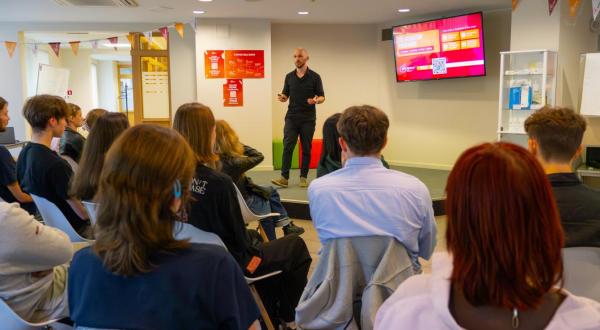RSU Institute of Public Health completes study on the impact of sugar consumption on physical and mental health
To investigate the public health benefits of reducing sugar consumption in Latvia, the Institute of Public Health (IPH) at Rīga Stradiņš University (RSU) has conducted a large-scale study ‘Impact of Sugar Consumption on Physical and Mental Health’.
A review of the scientific literature analyses the impact of sugar consumption on physical and mental health and healthcare costs.
Anda Ķīvīte-Urtāne, Director of the RSU Institute of Public Health:
‘It is well known that there is an epidemic of overweight in Latvia – up to 60% of adults and 25% of children are overweight or obese, which is a major risk factor for cancer, diabetes, heart disease and other diseases.
Therefore, one of the priority groups of activities in the new ‘Action Plan to Reduce the Increase in Overweight and Obesity 2025-2029’ developed by the Ministry of Health will be related to the reduction of sugar consumption among the Latvian population, including through tax policy. Our research shows that this reduction in consumption will be an effective contribution to promoting public health in Latvia.’
The studies included in the review looked at the impact of sugar consumption on microbiome changes, obesity, the prevalence of tooth decay, diabetes, and autoimmune diseases. The impact on the prevalence of cardiovascular diseases, cancer and on mortality, mental health and health care spending is also examined.
Ilze Maldupa, Assistant Professor and Senior Researcher at the RSU Department of Conservative Dentistry and Oral Health:
‘Sugar consumption is a burden on the healthcare system.
Research on reducing sugar intake in today’s modern society is difficult to conduct, but based on the available evidence, we can expect significant improvements in public health in all the areas studied. In addition, there is evidence of the negative health effects of early use of free sugars over the life course, so achieving policy decisions that reduce the opportunities for sugar consumption in younger children would have higher potential public health, well-being and economic benefits.’
Higher tax on foods high in sugar and salt
Meanwhile, the Baltic International Centre for Economic Policy Studies (BICEPS) has carried out a study entitled ‘Opportunities for Broadening the Tax Base: Foods High in Sugar and Salt’ with the aim of analysing the application of excise duties on soft drinks in Latvia and other EU Member States. The study also examines the scope for broadening the tax base in the Baltic States to include foods high in sugar and salt. It also examines the problem of overweight, including the role of soft drinks and foods high in salt and sugar in the diets of the Baltic population.
 Photo: Shutterstock
Photo: Shutterstock
An example of good practice for the Baltic States
In 2024, Hungary was the only country in Europe to apply a special indirect tax (public health product tax) on soft drinks and foods high in salt and sugar, in addition to VAT. Using the example of good practice in Hungary, the BICEPS study simulated different scenarios to assess the short-term impact on price increases, decrease in sales volume, and budget revenues of introducing a differentiated and comprehensive tax on foods high in sugar and salt in the Baltic States. The study makes recommendations on the design of the potential tax and the need for harmonisation of tax rates between the three Baltic States.
Related news
 Develop your business skills and bring ideas to life with the B-Space incubation programmeFor RSU Employees, For High School Students, For Students, Innovation
Develop your business skills and bring ideas to life with the B-Space incubation programmeFor RSU Employees, For High School Students, For Students, Innovation


